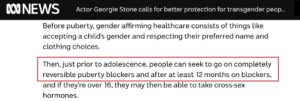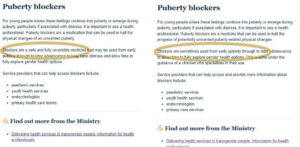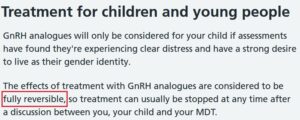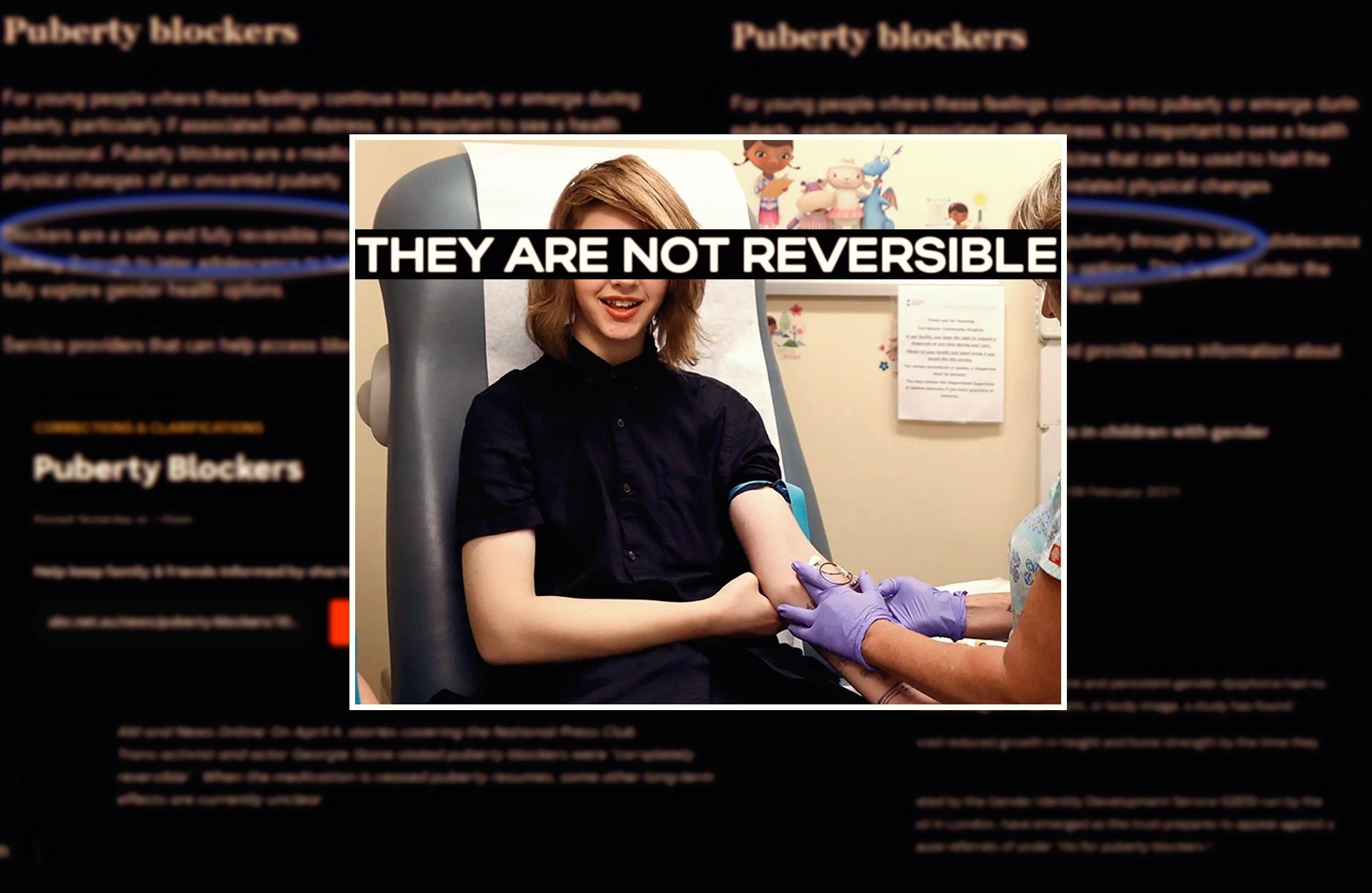The Australian Broadcasting Corporation (ABC) has been forced to issue a correction regarding its reporting on the safety of puberty blockers.
On Monday, the ABC made a statement that said, “On April 4, stories covering the National Press Club speech by Trans activist and actor Georgie Stone stated puberty blockers were “completely reversible”. When the medication is ceased puberty resumes, some other long-term effects are currently unclear.”
The original article titled, Actor Georgie Stone calls for better protection for transgender people amid uptick in hate speech, stated that “just prior to adolescence, people can seek to go on completely reversible puberty blockers and after at least 12 months on blockers, and if they’re over 16, they may then be able to take cross-sex hormones.”

Now, the amended article reads that “people can take a medication that pauses puberty.” The article also has an editor’s note making reference to the change in language.
The quiet edit is just one of many subtly occurring across media that shows the messaging around puberty blockers is changing as recent studies confirm the drugs are not as safe as once claimed.
The off-label use of puberty blockers has been prevalent in gender clinics worldwide, and concerns about their impact on children’s overall health has been the subject of heated debate.
In 2021, the UK’s National Institute of Health and Care Excellence (NICE) issued a report noting that existing studies of the drugs were small and “subject to bias and confounding.”
Since then, there has been an uptick in outlets and health agencies quietly amending their wording about the “reversibility” of puberty blockers.
New Zealand, Australia’s closest neighbor, is the latest country to make a subtle, but significant change, in the language used around these drugs.
Up until September 2022, the New Zealand Ministry of Health stated that “puberty Blockers are a safe and fully reversible medicine that may be used from early puberty through to later adolescence to help ease distress and allow time to fully explore gender health options.”
However, that advice was quietly changed by the Ministry.
“Safe and fully reversible medicine” has been removed and replaced with “Blockers are sometimes used from early puberty through to later adolescence to allow time to fully explore gender health options.”

In 2020, Britian’s NHS also made a similar change. The NHS website withdrew its claim that puberty blockers are “fully reversible.”
Two years later in 2022, Britian’s Tavistock transgender clinic, which was known for treating gender-confused youth, was shut down by the NHS after a review found it isn’t “safe for children.”

In the same year, the FDA added a warning label to puberty blockers after several children experienced severe symptoms.
Australian pediatric specialist, Dr Dylan Wilson, believes that Australia’s stance on transgender issues is a disingenuous one. He states:
“Pediatric endocrinologists in gender clinics in Australia and around the world are taking a cohort of physically healthy children and they are suppressing the puberty of these children at its earliest active stage, Tanner Stage 2.
Puberty for these children is never allowed to progress. The bodies of these children are frozen forever at this stage, even though they are growing chronologically older. Contrary to the popular belief, puberty blockers are not a “pause”.”
Puberty blockers are viewed as a way of “halting” puberty. But as The Publica reported recently, they result in irreversible changes to the bodies of young people.
Some of the negative side effects include stunted pubertal development, halted menstruation, and infertility.
As Dr Wilson notes, “When gender clinics say puberty blockers are reversible, they are telling a truth, but they are being disingenuous. When they say puberty blockers are a “pause” to give children time to think, they are certainly being economical with the truth. They know that those children are now set along this pathway. There is no pause. There is no reversal.”
He adds that a pediatric endocrinologist takes a child’s body, freezes it in a state of early puberty and then masculinizes or feminizes that body with the use of cross-sex hormones.
“They are creating a cohort of adults with children’s bodies, just adulterated by testosterone or estrogen.”







